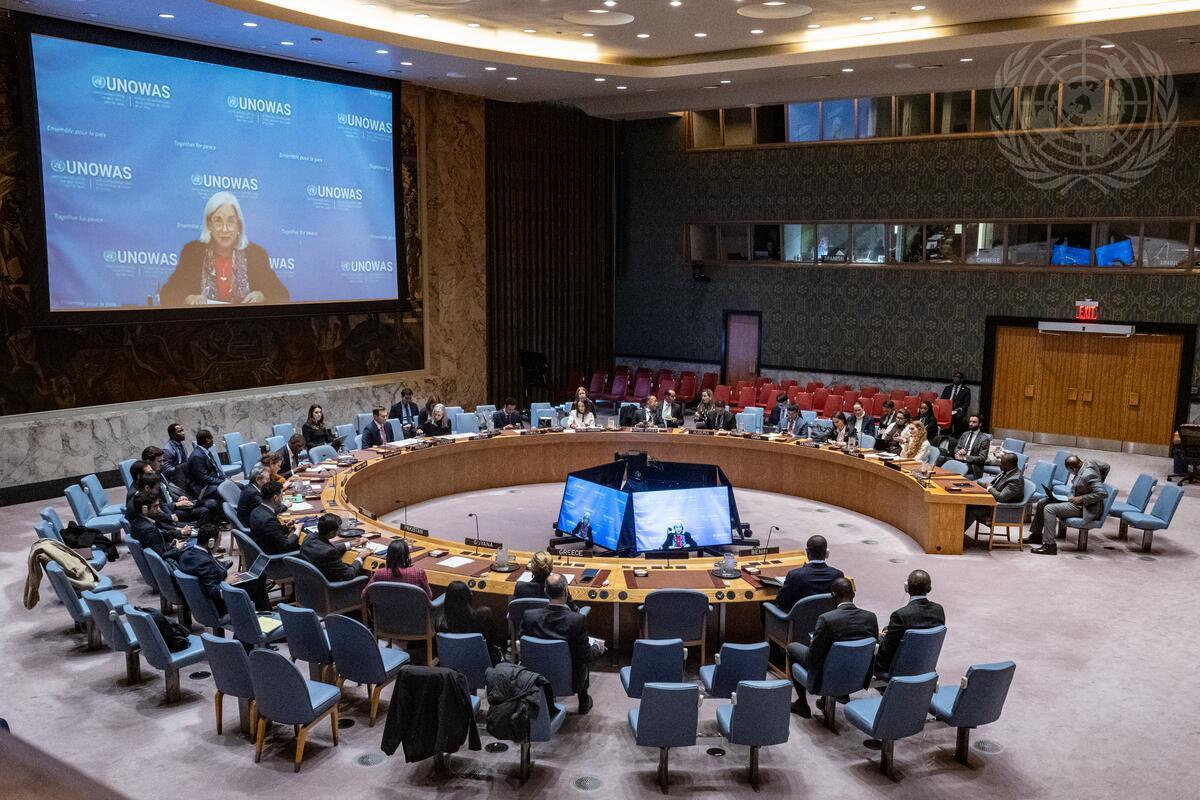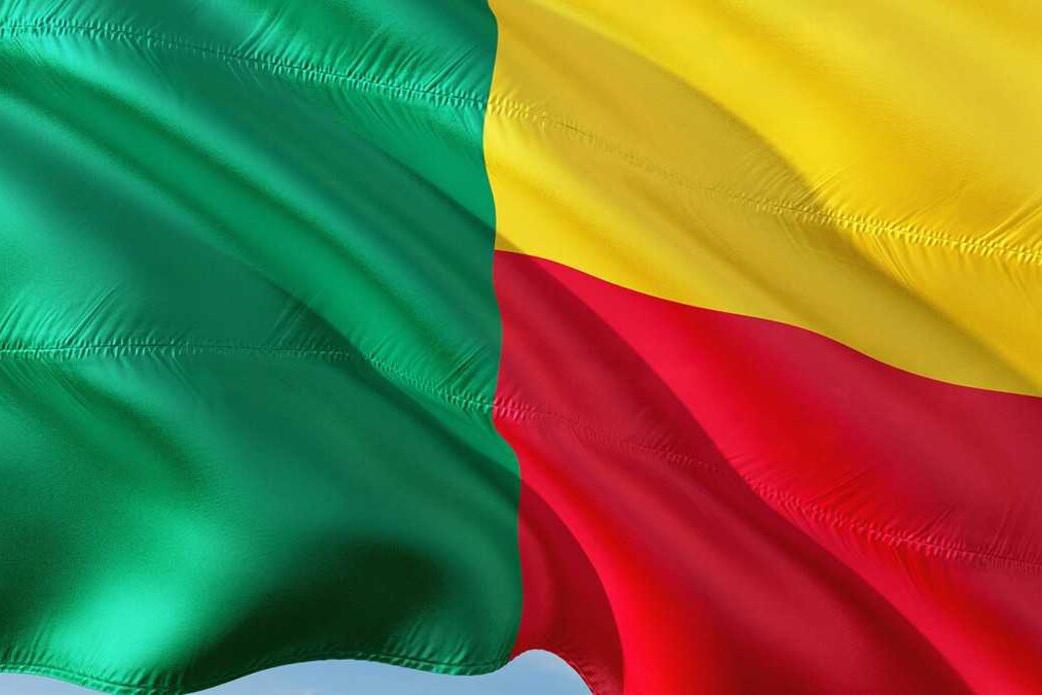Mohamed, Issouf, Moussa, and Aghali are members of communities that are affected by migration flows in Niger. A community stabilization project recently launched by IOM, the UN Migration Agency, is giving them and 26 other Nigeriens in Agadez reason to dream of a better future in their communities. The group of 30 is made up of returnees from Libya, ex migrant smugglers and youth at risk; their lives are all guided by a mix of ambition, uncertainty, and most importantly hope. They are now looking to the agricultural sector for opportunities to improve their lives.
Life used to be beautiful in Libya. I could work for a day and feed myself for three days
When he talks about Libya, Mohamed, 45, speaks with the melancholic tone of a man who has seen better days. For Mohamed, things are simple: life is better when he doesn’t have to worry about tomorrow. “Life used to be beautiful in Libya. I could work for a day and feed myself for three days” he says. Just as thousands of Nigeriens each year, Mohamed left for Libya in order to earn some money; his plan was to then come back home, feed his family and do it all over again. The European dream was never his ambition.
During his time abroad, Mohamed worked in a garage where Sudanese friends taught him how to weld. He came back to Niger in 2005 when the security situation in Libya started deteriorating, and tried finding a job back home. Back in Niger, he wanted to practice the craft he had learned in Libya, but when he took stock of the taxes he would have to pay and the lack of clients, he quickly realized that he needed to look for a different line of work.
I left Niger over and over again, and I came back just as many times.
“I left Niger over and over again, and I came back just as many times.” — Mohamed
Since he came back, Mohamed has participated in a few small income-generating activities like selling camel milk, but steady work is elusive. “I haven’t had a stable job since ’87 when tourism was booming in Agadez and the Paris–Dakar Rally was popular,” he says.
Mohamed is one of the 30 Nigerien beneficiaries that have been selected by a designated committee of local leaders in Agadez, to participate in IOM’s new community stabilization project. Supported by the United Nations Convention to Combat Desertification (UNCCD), the project focuses on migrant reintegration and on countering the radicalization in the region through the creation of jobs related to the restoration of degraded lands and their productive base.
Each beneficiary has received from the authorities one hectare of land to use for income-generating activities. Vegetable farming is very much dependent on season, some seasons not being as profitable as others. With that in mind, and until the end of the project, each of them receives a monthly allowance of 60,000 FCFA.
Like many of his compatriots, Mohamed has done his fair share of agricultural work over the course of his life — it is one of the main livelihood sources in Agadez — so he isn’t worried about picking it up again, as long as it guarantees that he can put food on the table for his family. When Mohamed asked his future parents-in-law for their daughter’s hand in marriage, he promised he would take care of her. “I intend to keep that promise,” he says.
On paper, Issouf, aged 24, meets the criteria for being considered a youth at risk: an unemployed person without formal education, aged 18–35 years old, who can barely find the means to feed himself and his family, but is willing to find a way — whether through regular means, or by engaging in criminal activities. While the risk is present, at first glance, Issouf strikes you as a young man who was raised to know better than to shame his parents by engaging in petty crime.
Issouf’s household, comprised of his parents, ten siblings, numerous aunts, nephews and nieces, is about three kilometers away from Agadez town. Together with Mohamed’s family and about 80 other families, they make up a very tight-knit community. Issouf takes any work he can get and often gardens with his father and brothers. His brother-in-law left for Libya a while back and never came back. It was no surprise, then, that Issouf jumped at the opportunity to take part in a new agricultural project when he heard unemployed youth in his village were being sought out. His parents were overcome with joy upon hearing that he had been selected and that he would have a stable income, which would allow him to support his extended family.
At the end of the day, we all help each other out to make ends meet.
“At the end of the day, we all help each other out to make ends meet.” — Issouf
The community stabilization project is not meant as a reconversion plan for ex-smugglers, but as an inclusive approach to engage all community members. The UNCCD project appeals to ex-smugglers like Moussa. Several years ago, the 48-year-old was approached by friends in the smuggling business who seemed to be doing well. Young and unemployed, Moussa decided to give it a shot and join their business. If there were migrants looking for a means of transportation, he was there to give them a lift. Little by little, the business expanded and so did his earnings. Ten years later, once the law n° 2015–36 (criminalizing the smuggling of migrants) started being implemented in Niger, he gave up the business.
I used to gain a lot as a smuggler, but it wasn’t worth the risk.
“I used to gain a lot as a smuggler, but it wasn’t worth the risk.” — Moussa
Before he ever pictured himself as a smuggler, however, Moussa used to garden for a living. His entrepreneurial spirit shines through as he talks about his plans for the plot of land he was allocated through the project. He wants to cultivate not only vegetables, but also orange, mango and date trees. During the month of April, when the prices are lower for sheep, he aims to buy a few and build an enclosure for them on his plot of land. Later on he can sell them at a higher price. He often talks with the other beneficiaries about how they can make this land more lucrative for everyone.
IOM staff in Niger help the beneficiaries make decisions about what to do with their plots of land and choose the right plants to cultivate if they want to start gardens.
“Cucurbits,” announces Fiza, IOM Community Stabilization Assistant in Agadez. “This is what they should be planting this season: cucumbers, pumpkins, watermelons.” During the course of the project, each beneficiary will participate in an agricultural training and receive a seed kit appropriate for the current vegetable farming season. Once they start making a profit, they can diversify the products they cultivate.
The obvious challenge to practicing agriculture in the middle of the desert is finding water. As Abdoul, 35, puts it: “If there is no water, there is no work.” With support from the local committee and providers, and following an in-depth feasibility study, the land has been leveled and the drilling has begun in the quest for water.
Given that the newly designated plots of land will no longer benefit the herder community in the area, 200 hectares of land in the vicinity have also been restored. Because of Agadez’s difficult terrain, more than 100,000 half-moons (water catchments) have been created to harvest and conserve rain water, and to create a favourable environment for plants. More than 150 people were engaged in cash-for-work activities during the rainy season to create the half-moons and to plant more than 60,000 trees. This newly created space and the water towers on the land are made available for use to all the four different villages in their surroundings.
The project also aims to organize weekly trainings in agriculture for close to 500 West African migrants staying at IOM’s transit centre in Agadez, as they wait for their travel documents to be ready. The migrants will be learning new skills on the land allotted to the UNCCD beneficiaries, and they can thus all interact not only on a professional level, but also on a personal one since many of them have similar migratory experiences.
Aghali, 25, used to earn his living as a motorcycle taxi driver in Agadez. When his bike was stolen, he decided that the only option was to leave for Libya. Once he arrived in Libya, he found a job in agriculture outside of the capital Tripoli. Since he barely got paid for his work, he went back to Tripoli where he got kidnapped and imprisoned for five months. He never called his parents to ask for money to pay the ransom because he didn’t want to worry them.
“The kidnappings, the slavery, it was all too much to endure, so I came back.” — Aghali
Aghali came back in 2017, but he still hasn’t heard any news from the friends he left behind in prison. He has seven brothers and sisters, and shares an especially close bond with his brother Rhissa. Since he came back, Aghali hasn’t been able to find a stable job. On a good day, he earns about four euros working on his neighbours’ land. While Aghali was away, Rhissa wanted to follow in his brother’s footsteps and leave for Libya, but his parents feared for his future. Aghali now hopes that having a plot of land of his own and being able to work alongside his brother will lead to a positive new chapter in his life.
This article is published in the UNOWAS Magazine N10 -> Download here






